
Fortune News | Jul 17,2022
The music scene has been particularly vibrant this year, with a diverse range of albums coming out one after the other. From chart-topping hits to critically acclaimed projects, the musicians are leveraging social media for promotion to influence streaming metrics and sales trends.
Ethiopia’s music scene has long been a reflection of its cultural depth and diversity, where both tradition and modernity blend harmoniously. Among the country's most dynamic figures shaping this evolving space, are Gutu Abera, Mastewal Eyayu, Aschalew Fetene, and Yemariam Cherinet. From the legends, Michael Belayneh has made a comeback after 12 years. These artists, though coming from different backgrounds and generations, share a commitment to blending rich musical heritage with contemporary sounds. Their unique journeys—shaped by upbringing, influences, and personal challenges—paint a broader picture of the country’s music industry in transition.
Gutu Abera's journey begins in the rolling hills of Western Wallaga, Oromia, where his exposure to the Oromo musical tradition left an indelible mark on him. Born into a culture steeped in music but lacking a direct familial link to it, Gutu’s love for sound developed naturally. His relocation to Norway in his youth might have distanced him from the physicality of his roots, but not from his cultural identity. His first album, Gaaffii Koo ("My Question"), fuses the pastoral and the modern, combining Oromiffa sounds with blues, classical, and hip-hop. Gutu’s story is one of cultural intersection, merging traditional storytelling with futuristic soundscapes.
In contrast, Michael Belayneh’s musical journey is deeply rooted in Addis Abeba, the bustling capital that gave birth to Ethiopian jazz and iconic musicians like Tilahun Gessesse and Mahmoud Ahmed. Michael’s connection to these legends is evident in his style, which maintains a more classic approach. But, it was not until his 30s that he embraced music as a full-time career. After studying industrial electricity at Bahirdar Polytechnic College, Michael discovered his talent for singing and piano playing, leading to his debut single "Sayesh Esasalehu". Now in his early 50s, Michael reflects on how the music industry has evolved over the years, balancing nostalgia for the old days with the challenges of staying relevant in the digital age. His latest album, A'nd Qal ("One Word"), which took nearly a decade to complete, speaks to his dedication to creating soulful, thoughtful music in an era dominated by fast consumption.
Mastewal Eyayu, like Gutu and Michael, has roots in both traditional and modern music, but his rise in the industry was shaped by a remix of a classic—Neway Debebe’s "Hagere Sew Atash Woy". Born in Bahir Dar, Mastewal grew up immersed in the sounds of his father and brother, which eventually led him to Addis Abeba, where he made a name for himself. His debut album Enzira ("Harmonise") is a reflection of his eclectic influences, blending ancient Ethiopian melodies with modern genres. His path, marked by participation in Ethiopian Idol, displays the fusion of local and global trends—using a platform that mirrors Western talent shows to achieve stardom. Despite the competition-driven start, Mastewal’s music has retained a deeply personal and traditional touch, reflecting themes of harmony and cultural pride.
On the other hand, Aschalew Fetene’s story is one of rediscovery. Born into a family of music lovers, he grew up watching his father play the Kirar under the trees of his hometown. However, Aschalew initially chose a different path, pursuing a degree in agriculture and working as an expert in the field. It was not until he moved to Addis Abeba at the age of 27 that his latent musical talents were fully realised. His debut album Aschale, released only six months ago, draws heavily from his childhood memories of traditional instruments.
Much like Gutu, Aschalew’s music seeks to connect the past with the present, but with an emphasis on preserving Ethiopia’s rural soundscapes in a rapidly urbanising world. His attachment to traditional instruments, which he custom-builds using materials like animal skulls and tendons, sets him apart as a preservationist in a field increasingly dominated by electronic beats.
Yemariam Cherinet, known by her stage name YEMa, represents the next generation of artists who are pushing boundaries while remaining grounded in cultural heritage. Born and raised in Addis Abeba, Yemariam was exposed to music from an early age, thanks to her father, the owner of Zema Lastas and Classic Band. Sneaking into rehearsals and absorbing the sounds of her father’s bands, she developed an early love for music that blossomed into a professional career by the age of 20. Her album Yedega Sew blends Ethiopian sounds with West and North African influences, marking her as an artist capable of crossing regional borders with ease.
Technology plays a powerful role in this evolution as they are benefiting from digital platforms that offer wider distribution. Whether it’s Gutu's transcontinental fusion, Michael's soulful nostalgia, Mastewal’s cultural remixes, Aschalew’s rural preservationism, or YEMa’s contemporary take, they continue to experiment, adapt, and push boundaries, serving custodians of the musical legacy.
AKSAH ITALO, our reporter, takes a moment with each of them to gain insights into their strategies and broader take on the industry.

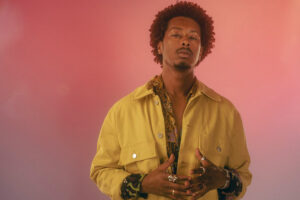
Gutu stands as a musical revolutionist, channelling his ancestry to his youthful energy and making his mark on the Ethiopian music industry. Hailing from Western Wallaga, Mendi, Gutu's journey began before he relocated to Norway at a young age. Exposed to the rich traditions of Affan Oromo music while incorporating modern melodies, he discovered his lyrical prowess through a blend of cultural heritage and contemporary influence. His candid reflections reveal a musician dedicated to merging tradition with modernity, crafting a global soundscape.
In his early 30s, Gutu's musical admiration extends to icons like the late Ali Birra and Alemayehu Eshete, whose influence he has embraced despite lacking a familial musical background.
His first album, Gaaffii Koo ("My Question"), is a fusion of traditional and futuristic sounds. He sought to blend elements from the past and the future, drawing on his childhood experiences of singing while shepherding and participating in church choirs. With the help of his wife, Mira Thiruchelvam, and a talented producer, the album integrates genres such as blues, classical, and hip-hop, resulting in a diverse and innovative body of work.
SPECIAL ONE
For me, "Jaalala Namaa" is a deeply personal track because it is connected to the memory of my father. He passed away when I was 11 years old, and this song became a way for me to reconnect with him. I was thinking about him when I wrote the song.
UPBRINGING
I attended primary school in Mendi town in Western Wallaga, Oromia Regional State before moving to Norway. I studied Social Work and Social Anthropology, and eventually earned a master’s degree in Family Therapy. Although I have not come from a musical background, I learned the basics and continued developing my skills for the past 15 years.
MUSIC
My interest in music was guided through the alleys of sound and melody in the traditional sounds of Oromiffa. Growing up I listened to Ali Bira and Alemayehu Eshete.
FIRST ALBUM
I wanted to connect the past and the future with my new album. It is about my dreams and my questions. Art is deeper than what we usually see, and I was inspired to blend traditional and futuristic elements. With my wife Mira Thiruchelvam, we experimented with a lot of sounds and ended up with the pop genre. It is a combination of different genres like blues, classical, and hip-hop. The partnership has helped in guiding the business and financial aspects and we are very pleased with how it turned out.
FEEDBACK
I have received both positive feedback and constructive criticism. It was valuable and overall, the response has been overwhelmingly positive.

After 12 years, the seasoned Michael Belayneh has made a return to the music scene with his album A'nd Qal (One Word) rekindling his fans' love for his soulful artistry. Born and raised in Addis Abeba, Michael’s career has been inspired by legendary figures like Tilahun Gessesse and Mahmoud Ahmed.
After completing a college program in Industrial Electricity at Bahirdar Polytechnic College, Michael discovered his talent for singing at the age of 21, while learning to play the piano at Yared Music School. He joined a band, singing English songs, and eventually launched his career at the age of 32 with the release of his first single, "Sayesh Esasalehu." Now in his early 50s, Michael believes the early musical training and years spent performing in clubs laid the foundation for his unique sound.
WHY THE WAIT?
The album took over nine years to complete. I had to take intermittent breaks due to other priorities and when my creative space drifted away during the pandemic. The first track to be completed was "Teyim," nine years ago.
GOOD THINGS COME IN THREE
I was deeply involved in the creative process, overseeing melodies, and production of the third album. The songwriting process was accompanied by four lyricists. The reaction truly left me in awe. Some said that listening to the music made them fall in love with a person they had not even known. I have received a range of comments, some of which were quite negative. I had to delete a few, thinking they might have been from angry individuals. [lol]
FAVOURITE
"Bemaleda" because of the songwriting while "WusteWeyra" translates to deep meaning.
ADVENTURES
I plan on entering the international market and am currently working on the possibilities.
NOW & THEN
Technology and digital platforms have given musicians a powerful tool to support businesses. I believe returns were quicker before although the artist did not know where to sell the music. The current difficulty is finding sponsors whereas before, music has been supported by breweries until the ban on advertisements for the industry. We now have to cover our expenses or collect funds to release an album.

Mastewal’s musical journey started in Bahir Dar city, nurtured by his brother and his late father. At 20, he ventured into the music industry, making a name for himself with a remix of Neway Debebe’s "Hagere Sew Atash Woy." It marked his first breakthrough and opened the door to his promising career.
His debut album, “Enzira,” which took 12 years to complete, features 14 tracks blending traditional and modern influences. The title, meaning "Harmonise" in Ge'ez, reflects Mastewal's creative vision and diverse influences. At 34, Mastewal continues to leave a mark on Ethiopia’s music scene.
WHAT'S NEXT?
I am preparing for concerts and tours, with plans to perform in Europe and North America. Long-term, I want to establish my own record label. The music industry has tremendous untapped talent, but it has not grown at the pace it should. I want to create a platform for young, creative minds to contribute to the industry.
TURNING POINT
My participation in Ethiopian Idol marked a turning point. I decided to pursue music instead of going to college, eventually moving to Addis Abeba. I ranked second in the competition and my career began to take shape when I performed in clubs, imitating iconic musicians
DEBUT ALBUM
It took 12 years to complete because we experimented with various genres. My wife, who is also a singer, played a crucial role with constructive feedback and support. The difficulty in finding the right equipment, composers, and songwriters took time. We also struggled with distribution because social media was not as widely used back then.
PICK ONE
"Alemilim" holds a special place in my heart. It is tied to the tradition of swearing by a mother’s name, something deeply rooted in our culture. I received the lyrics and melody around the same time my mother visited me, it always reminds me of her.

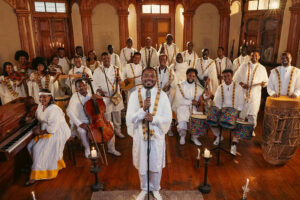
Coming from a family of music lovers, Aschalew, 38, spent many days listening to his father play Kirar under the tree. From a young age, he found himself drawn to the melodies of the instrument. However, it was not until he came to Addis Abeba that he considered music as a profession. Instead, he pursued academia, studying agriculture at Woldia University, a path that led him away from his hometown later on.
Before releasing his first album six months ago, Aschalew tested the waters with two singles. His debut album, Aschale, brings together tradition and modernity, along with narratives of strength, cultural aspirations, and deep feelings of love and loss through 14 tracks. It has cemented his place as one of Ethiopia’s most influential artists.
MUSIC
I was always exposed to music. However, I pursued a degree in agriculture and worked as an expert. At 27, I moved to Addis Abeba and began working at a cultural centre. That is where my music career truly began, as I performed the works of various artists.
INCEPTION
The idea for my album began after I completed my first music video, Abay, with my producer Sewmehon Yismaw, who influenced the style of my tracks. The album’s main theme was using traditional instruments like the Kirar and Mesenqo while blending them with modern styles. Almost 80pc of the compositions and melodies are mine, but I collaborated with other artists who contributed to the compositions.
ARMED WEAPON
Kirar holds a special place in my heart. Mine was made from scratch using an animal skull and tendon. I also converted traditional drums from wood, changing the 50-year-old tradition of making them with steel. In total, I used 20 different types of instruments, aiming for my music to represent the true colours of Ethiopia.
CLOSE TO HEART
My favourite track is Enatwa Gonder. It has a deep emotional connection for me—I feel overwhelmed with nostalgia and loss when I listen to it. It always takes me back to Gonder, and I have shed many tears while listening to it.
MUSICAL WOES

One of the biggest challenges is balancing traditional music with modern trends. Traditional music is slowly being pushed aside, but I am committed to staying true to myself while adapting to market changes. I want my songs to offer deep reflection and take listeners on a journey to the unknown.
The Future
I worry that without thoughtful lyrics and cultural understanding, the impact of the music could be lost. It is crucial to read, learn, and absorb culture so that when we sing, we are saying something of substance.
Sneak Peek
In the short term, I will perform in concerts. But I am working on my second album, excited to continue creating new melodies.
YEMARIAM CHERINET


Known by her stage name YEMa, Yemariam is an emerging singer whose latest album, Yedega Sew, with a contemporary touch. Born and raised in Addis Abeba, Yemariam’s passion for music began at a young age. Her father, the owner of Zema Lastas and Classic Band, allowed her to sneak into rehearsals, which she believes subconsciously nurtured her love for music. She officially started her professional music career at 20.
PROCESS
The concept of my album centres on culture. The sound is a fusion of various genres ranging from indigenous Ethiopian traditions to West and North African music, with elements of experimental music and cultural styles. Most of the process began with lyrics, while others were born from melodies. The album's collaborative effort spanned about three months. Much of the creative work was done in a home studio, and the final recordings took place at the Yared Music School studio, where we incorporated a variety of instruments.
FAVOURITE TRACK
Birk-Birk holds a special meaning, as it is connected to my love life.
FEEDBACK
There have been a lot of comparisons to singer Ejigayehu Shibabaw (GIGI), which has given me much to reflect on. I appreciate the responses from listeners. The positive feedback I have received far outweighs the critiques, and it has been encouraging.
OUTCOME
I hope people connect with the emotions and stories behind the music, appreciating the journey we took in creating it. I hope it inspires others to embrace their artistic identities and recognise the beauty of collaboration across genres and cultures.
SNEAK PEAK
I am experimenting with new sounds and expanding my musical palette for my second album. Various cultures and styles will be blended in the upcoming project.
AMBITIONS
My primary goal is to break into the international market. I have recently been invited to tour Europe after two months and will also perform in Zanzibar, having been selected as one of 30 artists out of 400. I want to continue expanding my reach globally, representing Ethiopia and showcasing our music on an international stage.
PUBLISHED ON
Sep 09,2024 [ VOL
25 , NO
1271]

Fortune News | Jul 17,2022

Radar | Mar 16,2024
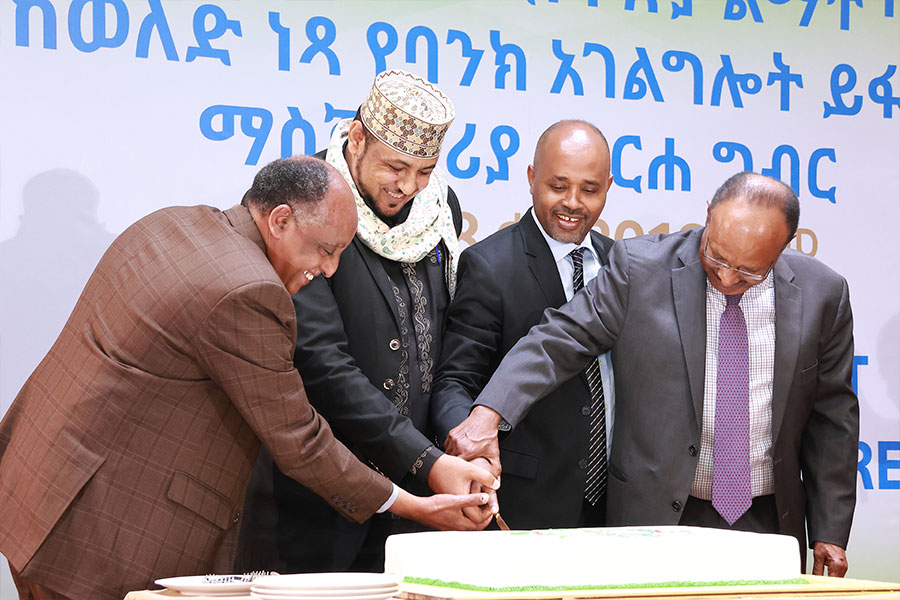
Radar | Oct 23,2023
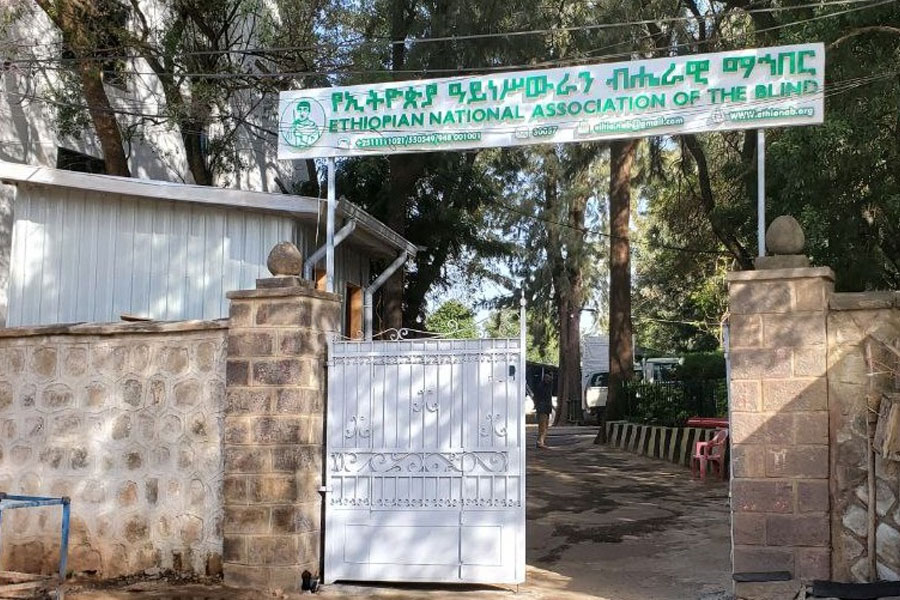
Agenda | Jun 15,2025
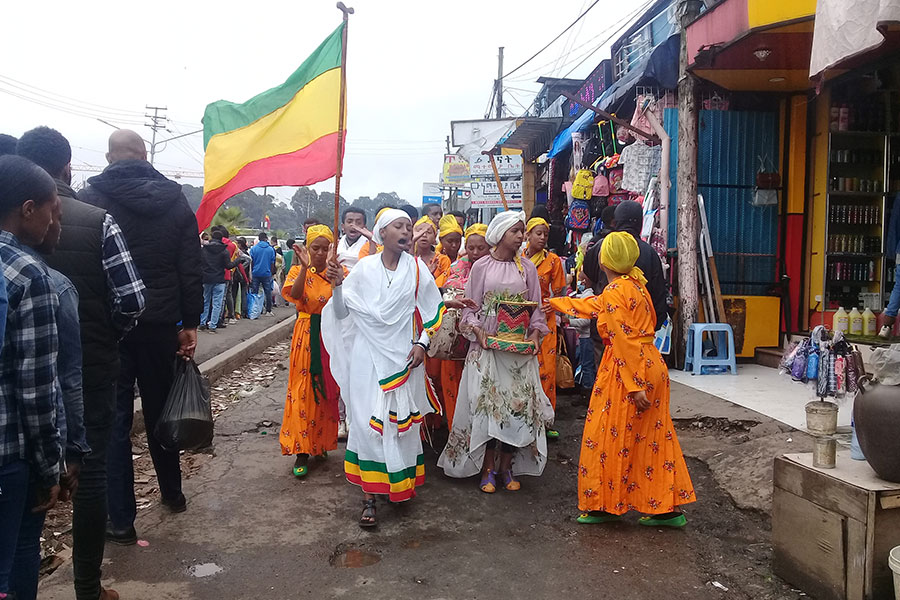
Radar | Sep 10,2021

Radar | Aug 26,2023
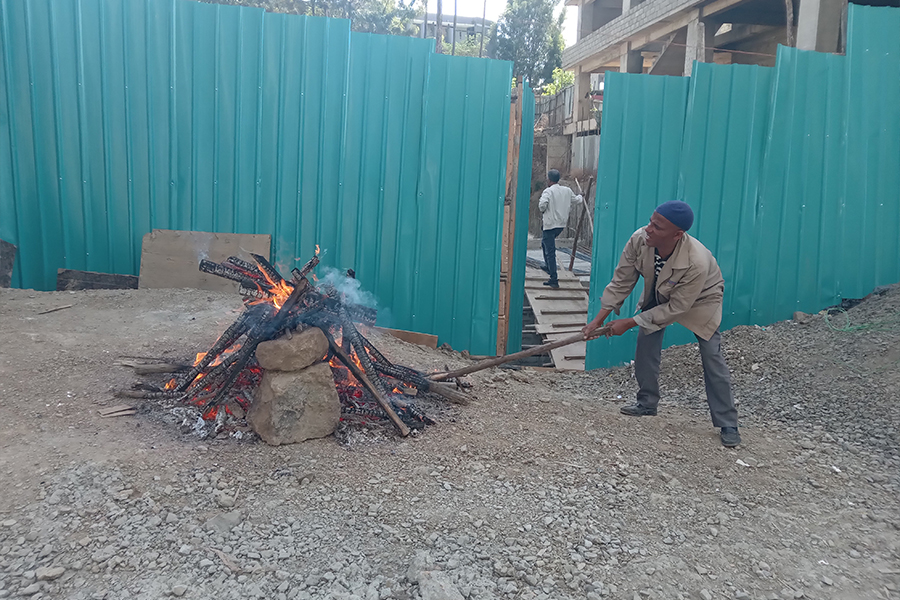
In-Picture | Mar 02,2024

Radar | Nov 21,2018
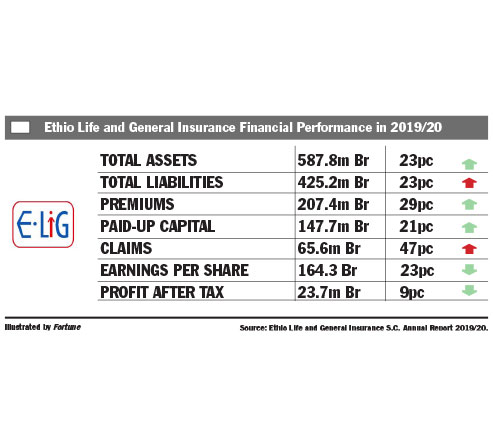
Fortune News | Apr 24,2021
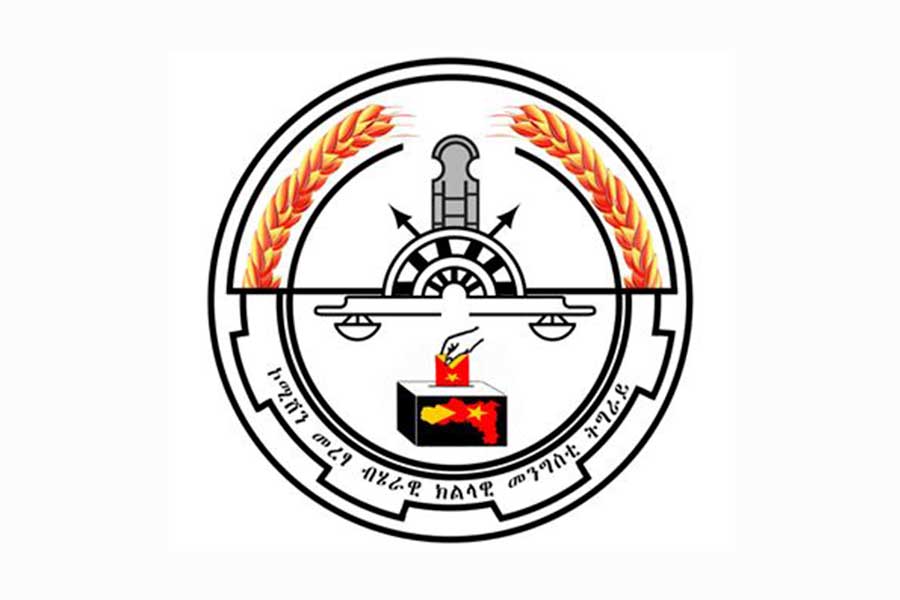
Fortune News | Aug 01,2020

Dec 22 , 2024 . By TIZITA SHEWAFERAW
Charged with transforming colossal state-owned enterprises into modern and competitiv...

Aug 18 , 2024 . By AKSAH ITALO
Although predictable Yonas Zerihun's job in the ride-hailing service is not immune to...

Jul 28 , 2024 . By TIZITA SHEWAFERAW
Unhabitual, perhaps too many, Samuel Gebreyohannes, 38, used to occasionally enjoy a couple of beers at breakfast. However, he recently swit...

Jul 13 , 2024 . By AKSAH ITALO
Investors who rely on tractors, trucks, and field vehicles for commuting, transporting commodities, and f...

Oct 18 , 2025
The political establishment, notably the ruling party and its top brass, has become p...

Oct 11 , 2025
Ladislas Farago, a roving Associated Press (AP) correspondent, arrived in Ethiopia in...

Oct 4 , 2025
Eyob Tekalegn (PhD) had been in the Governor's chair for only weeks when, on Septembe...

Sep 27 , 2025
Four years into an experiment with “shock therapy” in education, the national moo...